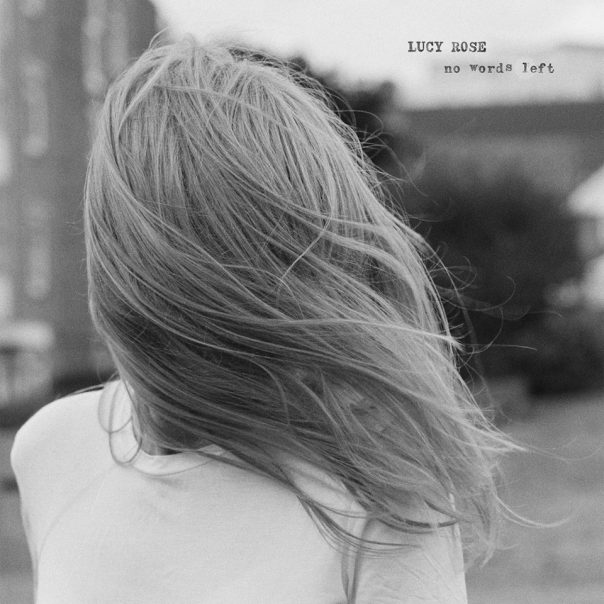ALBUM REVIEW: Lucy Rose brings somber beauty to ‘No Words Left’

English singer-songwriter Lucy Rose returns with a beautifully ethereal fourth album filled with gorgeous acoustic guitars, piano, harmonies and strings. Coming two years after Something’s Changing, No Words Left‘s poignant and poised lyrics feel personal and reflective. Somber thoughts and elegantly layered instrumentation brings the record to life as a reflection of Rose’s inner thoughts and emotions.
No Words Left
Lucy Rose
Arts & Crafts, March 22
No Words Left ironically begins with a song called “Conversation,” where Rose sings, “Conversation don’t come easy/ But I’ve got a lot to say.” With a delicate voice and raw acoustic guitar, Rose unpacks conflicted feeling, where the person who seems to loves her the most also lets her down the most. As her emotion builds, so do the violins and soft piano chords that swell around Lucy Rose’s echoing voice.
No Words Left is an emotionally moving record on a lyrical level, but several tracks bring emotion up from the depths with instrumentation alone. The title track is a two-part interlude, making up the second and penultimate songs on the album. The first springs from the last notes of “Conversation” with scattered acoustic and electric guitar, finger-tapped percussion and delicate piano chords, while Rose’s wordless vocal melodies weave throughout. The instrumentation becomes a whirlpool of sound that cradles listeners; powerful yet comforting.
“Pt. 2” begins with beautiful and delicate piano balladry as Rose sings, “This time I’m looking out for me/ I won’t hesitate you believe it/ This time I’m looking out for me/ ‘Til I’m whole again/ I want to feel whole again.” The familiar sonic whirlpool then returns with building complexity. Violins, a thumping bass line and a rolling drum beat support the echoes of Rose’s melodious voice before effortlessly coming back to the start. Rose sings a slightly changed version of the lyrics on the first version, bringing the beautifully somberness full circle.
“Solo(w)” is another emotionally grabbing ballad, where Rose’s voice gracefully yearns for her lover to come back. “’Cause something is missing/ When I am solo,” Rose sings as the last half of this track transforms. Dramatic saxophone enters the mix along with lush strings, swirling around Rose’s repeating of song’s name sake.
Acoustic folk cut “Treat Me Like A Woman” is something to which many women can painfully relate. It focuses on the way Rose isn’t taken seriously because of her gender. “And you treat me like a fool/ Or do you treat me like a woman?/ Make me feel so small/ Well, is that what I’m good for,” Rose sings with support from light percussion, backing harmonies and a trailing bass line. The song hits home when she sings, “And I’m afraid and I’m scared and I’m terrified/ That these things won’t ever change/ And I’m afraid and I’m scared and I’m terrified/ That this is how it will be for all of my life.”
“Song After Song” fittingly closes No Words Left. Beginning with lullaby-esque acoustic strumming and Rose singing sweetly, the opening line sums up the album’s premonition: “Song after song all about me, my misery.” The finale reflects on how the previous tracks look into Rose’s thoughts and feelings. Rose acknowledges that she’s “blue,” but her vibe is still uplifted by the song’s mood of hope in the very end.
No Words Left is a lovely and entrancing record. When listening to the instrumentation, the contrast of stripped-down acoustic guitar and building massive arrangements is compelling and effortless. This lyrics have a melancholic feel, but they’re also comforting. The two elements combine to bring a state of peace and self-reflection to these immersive tunes.
Follow writer Carly Van Den Broeke at Twitter.com/carlyrosevdb.
